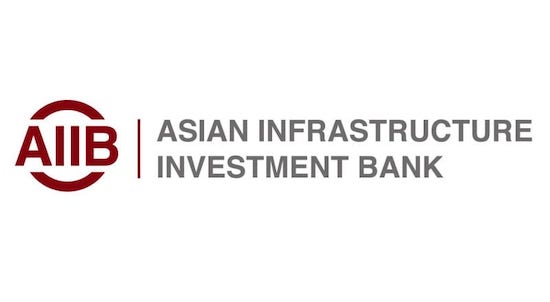The Draft Revised Project Affected People’s Mechanism Policy still falls short of international good practice by a margin

In July 2025, the Complaints-resolution, Evaluation and Integrity Unit (CEIU) of the Asian Infrastructure Investment Bank (AIIB) released a revised draft policy for the bank’s independent accountability mechanism, the Project-affected People’s Mechanism (PPM), commencing a 90-day second phase consultation period. Civil society organizations have long advocated for the opportunity to address major gaps in visibility, accessibility, and effectiveness that have hindered the PPM’s ability to provide redress for environmental, social, and human rights concerns. The review is an opportunity for the institution to signal that it is willing to hear directly from frontline communities about the impacts of its investments and take accountability for when it causes harm. Unfortunately, the much awaited draft revised PPM Policy does not address the PPM’s core challenges.
Commitment to international good practice is lacking:
In December 2023, the managing director of the CEIU (MD-CEIU) committed to reviewing the PPM Policy through an independent and transparent process based on broad consultation – a first for any AIIB policy review. Accordingly, the MD-CEIU hired an external reviewer, who in June 2024 recommended sweeping changes to the PPM. At that time, CSOs noted that the “external reviewer’s policy recommendations are wide ranging, timely, and crucial to direct the PPM policy toward the baseline of international good practice. . . . If the AIIB ignores these recommendations, it would be reasonable to question whether the review was launched in earnest.”
Disappointingly, the new draft has failed to address the majority of the recommendations (5 out of 8) made by the external reviewer. How has a relatively robust review process resulted in such a disappointing outcome? We can only guess that the answer lies in what has been described by the MD-CEIU as a consensus building process between the PPM and AIIB management as directed by the Bank’s shareholders. Unfortunately, this process seemingly has favored management’s desire to limit the outcomes of the review.
“Although the PPM Review process is to be commended and has resulted in several positive changes to the Policy, some important recommendations of the External Review have not been considered. It is hoped that they will be taken into account in the next round of consultations.” Dr. Zeinab Bashir El Bakri, External Reviewer for the PPM Policy.
Management’s desire to contain the review is evidenced in the external review report, which notes that most management and some board members felt that the review should only result in “light changes” because the PPM has yet to be tested by an eligible case. Nevermind that the lack of a single eligible complaint is a significant indicator of the policy’s lack of effectiveness and the need for fundamental reform.
Further, the external review report mentions that some stakeholders held the view that reducing accessibility barriers to the PPM may result in a deluge of frivolous complaints. Even though the perspective is unsupported by data at other institutions, it nonetheless helps contextualize why important policy recommendations remain unaddressed – the institutional culture of AIIB seems afflicted with a persistent skepticism or misconception that public-facing, independent accountability processes are obstacles to bypass rather than a vital way to protect the rights and safety of communities, and the sustainability of projects.
What’s in the Policy and what’s still missing:
- AIIB still requires complainants to engage in good faith efforts with both AIIB management and project-level grievance redress mechanism prior to bringing a complaint to the PPM. There is a new welcomed exception to the prior good faith engagement rule: a failure on the part of Management to engage meaningfully with the Requestors within a reasonable period of time following notice to Management to engage with the Requestors. Two existing exceptions also remain: the nonexistence or nonfunctioning of the Project-level GRM and a risk of retaliation.
“It’s impossible to believe that the AIIB actually wants its accountability mechanism to hear cases when the draft policy still requires people to first go to project-level grievance mechanisms and alert AIIB management of issues before they are even allowed to submit a complaint to the accountability mechanism. In other words, the AIIB’s draft policy requires communities whose lives, livelihoods, and environments are at risk to first take precious time to attempt to reach out to admittedly non-existent and non-functioning channels before they are permitted to seek justice.” Stephanie Amoako, Accountability Counsel.
- The scope of the PPM still excludes AIIB’s portfolio of capital market investments and co-financed projects. AIIB management is now required to report to the Board when a co-financiers IAM makes a finding of non-compliance in an AIIB co-financed project. Reporting is limited to implications for AIIB and opportunities for institution learning, but there is no mention of responsiveness to affected-communities.
- The PPM still does not have a retaliaiton risk protocol of assess, prevent, and mitigate retaliation risks faced by affected communities.
- The PPM still is not given the power to monitor how Management responds to its findings; the draft policy only permits board-approved independent verification in exceptional circumstances.
- The PPM still does not have the power to self-initiate cases, and neither do the Board or the President— even in exceptional situations when credible evidence of serious or systematic harm exists.
- The Policy no longer provides an automatic review in the next five years. Instead MD-CEIU would have to recommend a review based on an assessment and require Board approval.
“Almost every other bank’s accountability mechanism can monitor whether its advice is followed. Why wouldn’t the AIIB want the same? The overly constrained “verification” process that the draft policy proposes instead is an accountability nightmare that requires communities to trust that after the AIIB is found to have not complied with its own rules, it will–without any independent monitoring–decide to comply and address negative impacts. Why would communities trust that this accountability process is worth the risk without a standard assurance that the AIIB can actually be held to its obligations?” Margaux Day, Accountability Counsel
The need for stronger improvements is still as urgent as ever:
As of writing this, there are 41 complainants filed to co-financiers’ IAMs across 10 AIIB co-funded projects that the PPM will never hear from. There are 7 complainants filed directly to the PPM itself that have all been found ineligible. There is also a host of communities that will never file to the PPM because it lacks legitimacy as an independent mechanism. Without a PPM that is fit for purpose, AIIB will continue avoiding accountability for harming frontline communities in Asia and around the world.
AIIB, particularly its shareholders, still have the opportunity to course correct. At the very least, we call on AIIB to incorporate all recommendations of the external review report in their final draft. Absent this, AIIB risks losing an opportunity to enter its new decade as a responsible institution.
Related Posts
- 16 July 2025 Press Release: AIIB misses its chance to be accountable to local communities
- 25 September 2024 34 Civil Society Organizations submit joint recommendations on how to strengthen AIIB’s Project-Affected People’s Mechanism
- 24 June 2024 External Review Report Recommends Sweeping Changes to the AIIB’s Independent Accountability Mechanism

